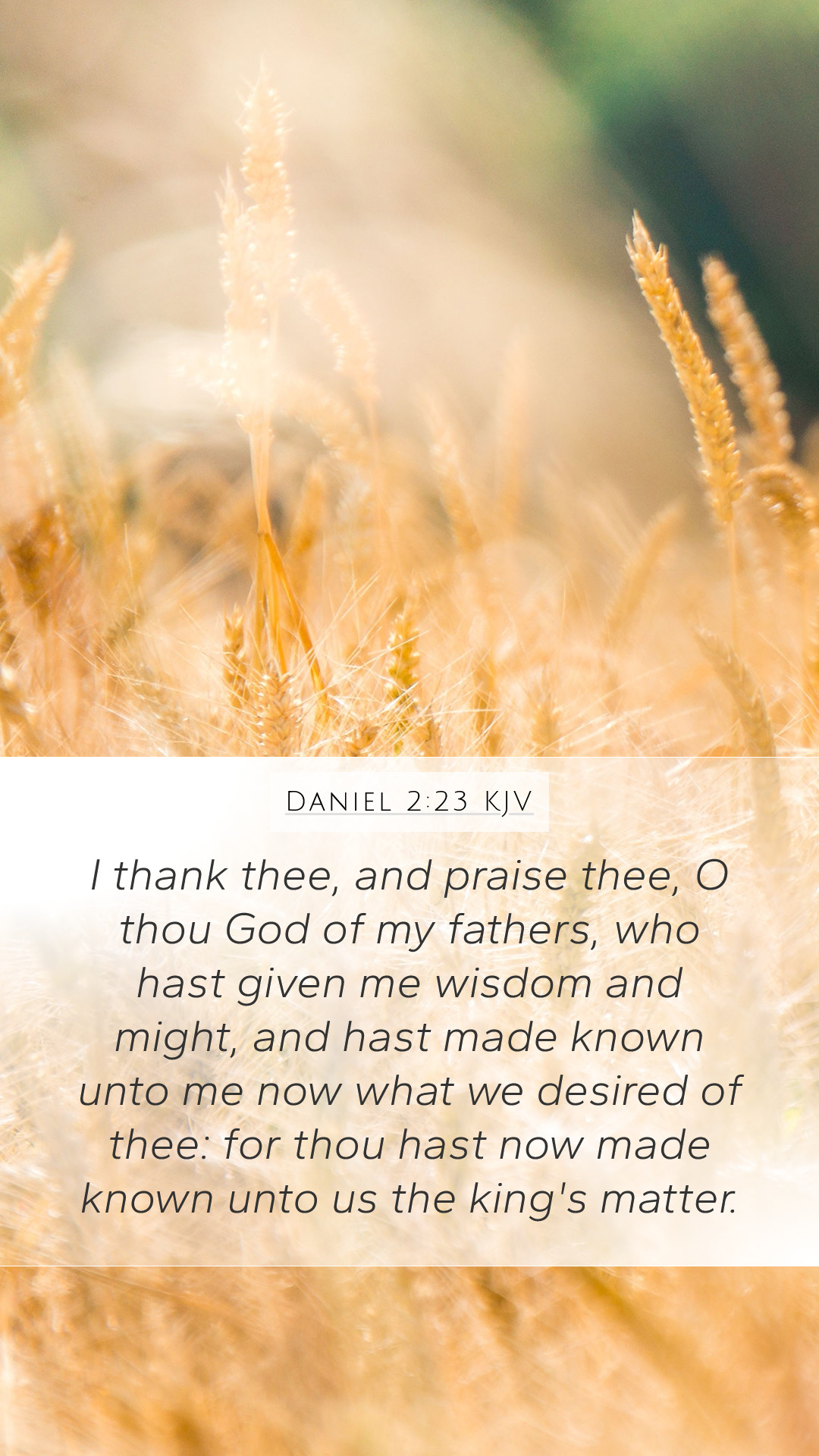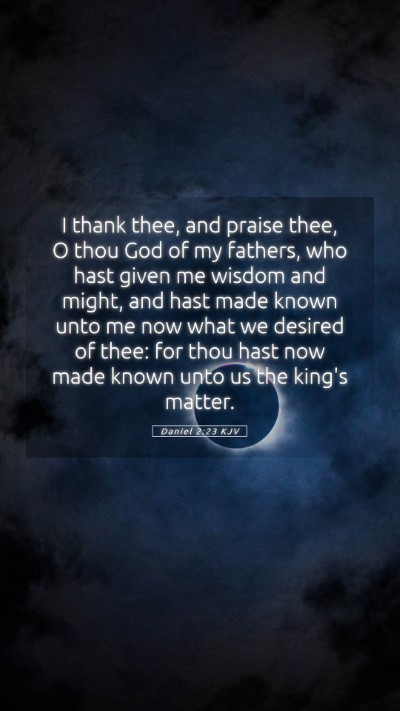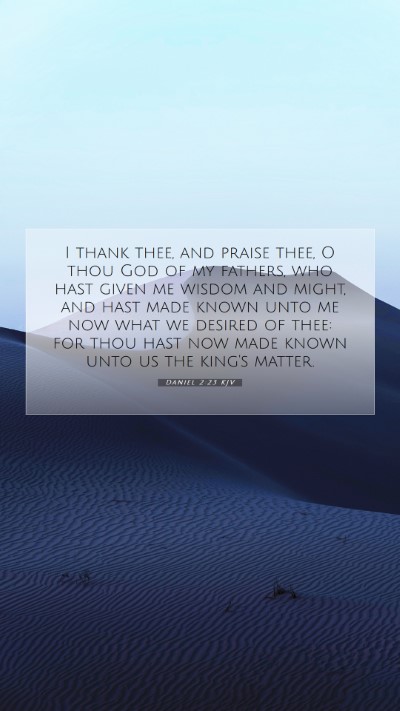Bible Verse Meaning of Daniel 2:23
Verse: "I thank thee, and praise thee, O thou God of my fathers, who hast given me wisdom and might, and hast made known unto me now what we desired of thee: for thou hast now made known unto us the king's matter." - Daniel 2:23 (KJV)
Overview
This verse is part of a prayer of thanksgiving that Daniel offers to God after receiving the interpretation of King Nebuchadnezzar's dream. It highlights Daniel's reverence for God and acknowledges the divine wisdom granted to him. This expression encapsulates essential themes found throughout both the Old and New Testaments concerning divine revelation and human response.
Key Themes
- Gratitude: Daniel begins his response with gratitude, emphasizing the importance of acknowledging God's gifts.
- Divine Wisdom: The wisdom and strength provided to Daniel showcase the belief that true knowledge and power come from God.
- Revelation: Daniel’s understanding of the king’s dream represents divine revelation, a recurring motif in Scripture.
- Collective Identity: The phrase “God of my fathers” indicates the continuity of faith and the importance of heritage in understanding God’s workings.
Bible Verse Interpretations
Matthew Henry's Commentary: Henry emphasizes that Daniel recognizes that all wisdom and might are derived from God. This acknowledgment serves as both praise and a reminder of God’s sovereignty over human affairs. Henry interprets this verse as a reflection of humility – recognizing that Daniel did not achieve this wisdom on his own but through God’s grace.
Albert Barnes' Commentary: Barnes points out that the reference to the "God of my fathers" illustrates the continuity of divine guidance through generations. He notes that Daniel’s prayer acknowledges past faithfulness and emphasizes the personal relationship between God and His people. This perspective encourages believers to reflect on their spiritual heritage and God's ongoing work in their lives.
Adam Clarke's Commentary: Clarke offers insights on the phrase “who hast given me wisdom and might,” suggesting that the wisdom referred to is both intellectual and spiritual. He notes that this wisdom is essential for understanding God’s will and navigating life’s complexities. Clark also highlights the significance of being humble before God while pursuing knowledge and understanding.
Understanding Scripture through Historical Context
This verse comes in the context of Babylonian captivity, where Daniel serves as a Jewish exile in a foreign land. It is essential to consider this historical background to fully grasp the implications of divine favor and revelation amidst adversity.
Application of Daniel 2:23 in Bible Study
In studying this verse, one can find several applications relevant to both ancient and modern contexts:
- Recognizing the importance of gratitude in the believer's life.
- Understanding the source of wisdom and knowledge, which counters the pride of self-sufficiency.
- Exploring the theme of divine revelation and its relevance for personal and communal faith experiences.
Additional Cross References
- James 1:5 - "If any of you lack wisdom, let him ask of God, that giveth to all men liberally, and upbraideth not; and it shall be given him."
- Proverbs 2:6 - "For the Lord giveth wisdom: out of his mouth cometh knowledge and understanding."
- 1 Corinthians 1:30 - "But of him are ye in Christ Jesus, who of God is made unto us wisdom, and righteousness, and sanctification, and redemption."
Conclusion
Daniel 2:23 serves as a profound reminder of the necessity of recognizing God’s contributions to wisdom and understanding in our lives. It teaches future generations about the core elements of gratitude, reliance on divine insight, and the importance of our spiritual heritage. By learning to view our lives through the lens of divine revelation, we can better comprehend our purpose and existence in relation to God’s overarching plan.


